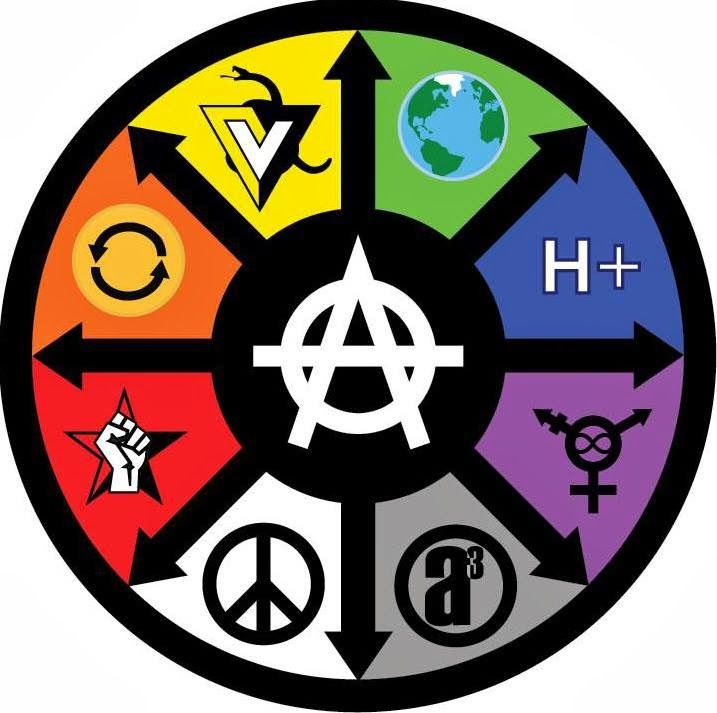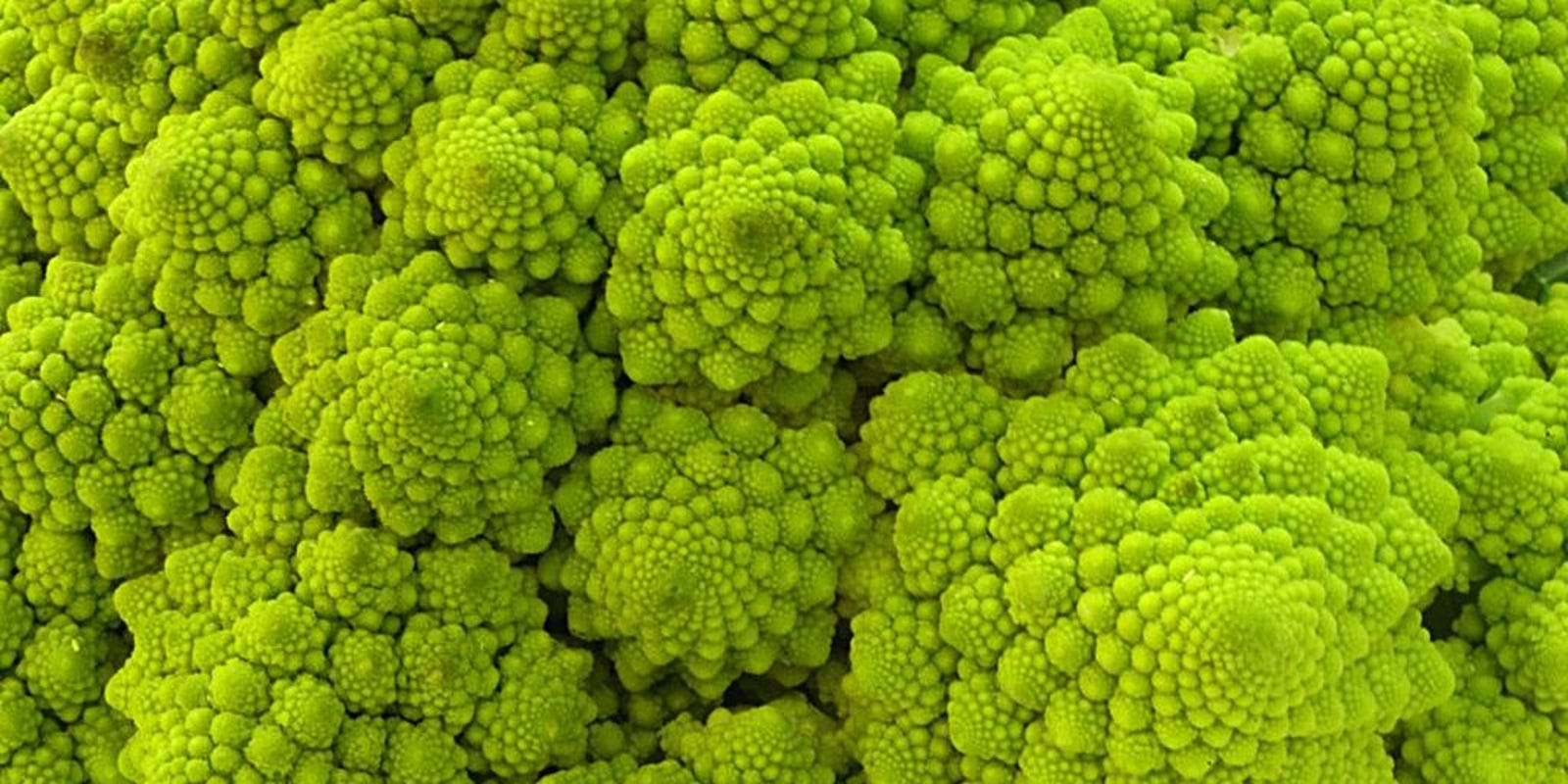When I discovered Bitcoin in late 2012, the event sent me on a fantastic journey of a lifetime. Not only did I learn about money, but I also studied the ways current political regimes operate in the world. I cannot say I have become an initiate in political science, but the limited knowledge I have, combined with an intuitive understanding of certain principles of Nature, led me to believe that we are terribly off course.
This is one of the reasons that made me write How to Scam the Planet, Part 2: Democracy. However, it is mostly an exposé of the shortcomings of a particular mode of government that is widespread today. I did not offer a solution to the problem, nor may I provide a concrete one in this article. But this time, I will attempt to bring the issue closer to home.
Anarchy
In the natural course of my becoming, Bitcoin opened my eyes on many issues that persist today in the world. Besides the utterly fraudulent monetary system, there was another big discovery. Although it is connected with and affected by money, it certainly deserves an independent exploration. The issue is that of Government.
You can imagine the journey of a young, easily impressionable guy in his mid-twenties:
- It looks like Government is not what it seems;
- Government is cancer;
- We must abolish all Government.
Thus came about my acquaintance with Anarchy, followed by the the study of its political implementation, Anarchism. From Merriam-Webster:
Anarchism
: a political theory holding all forms of governmental authority to be unnecessary and undesirable and advocating a society based on voluntary cooperation and free association of individuals and groups.
As emotions reigned over reason at the time, I quickly attached a label to myself: an Anarchist. It was a time of pride and mental satisfaction. How could it not be? After all, I had swallowed the red pill and learned about the Matrix, while the rest of the world were asleep! I was a black sheep among the sheeple!
It was not long before I realized that even among anarchists there were constant infightings as to what Anarchy actually is. To some, it was just soft libertarianism, to others—classical liberalism, yet some others proclaimed the ultimate goal of a stateless society. Even though I leaned towards the latter, there were disagreements as to how that type of society would be managed. A free market? A communist utopia? A mixture of the two?

Delving into Austrian economics at the same time, my choice was clear: the world must rid of the State, and all the human relations must be voluntary and based on the principles of laissez-faire markets! My label got an upgrade: an Anarcho-Capitalist, also known as Volantaryist (the black-and-yellow section in the circle).
Did it end there, though? It did not. I am a person who engages in constant refinement of character and knowledge. A lifelong process! "Change" is my middle name. To me, it is natural. Because if change ever stops, it means I have learned everything there is to know, perfected every area of my earthly life. Impossible.
How have I upgraded my knowledge to date?
Hierarchy
As I went deeper into the study of Nature (including human nature), political affairs and economic relationships, the realization dawned upon me that I was quite naive in my thinking. Not a rare occurrence, if you ask me!
At first, I believed that anarcho-capitalism meant not just the absence of Government, with capital G, but of any form of government whatsoever. Big, medium, small, unlimited or limited. But the study of the workings of Nature clearly reveals certain truths to the questioning mind:
- Everything in the Universe tends to self-organize;
- Hierarchy is natural order.
Let me cover both.
Spontaneous Order
While the world seems like a chaotic place, one must understand the relationship between Chaos and Order. Our human mind likes to differentiate things because it makes it easier to fathom certain concepts. However, the reality is that Chaos and Order are one and the same thing, only with different degrees of such differentiation. The latter is simply part of and flows from the former.
The illustration below makes it more apparent. Out of the seeming Chaos of the Cosmos, we conceive orderly patterns, such as constellations.

But Nature does not need the human mind to help her order things. It is what she does in her eternal dance of Becoming.

Metaphysics aside, let us take a look at the concept of spontaneous order. Wikipedia can help with the term:
"Spontaneous order, also named self-organization in the hard sciences, is the spontaneous emergence of order out of seeming chaos. It is a process in social networks including economics, though the term "self-organization" is more often used for physical changes and biological processes, while "spontaneous order" is typically used to describe the emergence of various kinds of social orders from a combination of self-interested individuals who are not intentionally trying to create order through planning."—Wikipedia
In economics, the phenomenon has been treated by many scholars, but the most famous example is that of the invisible hand introduced by the father of the science, Adam Smith.
"By preferring the support of domestick to that of foreign industry, he intends only his own security; and by directing that industry in such a manner as its produce may be of the greatest value, he intends only his own gain, and he is in this, as in many other cases, led by an invisible hand to promote an end which was no part of his intention. Nor is it always the worse for the society that it was no part of it. By pursuing his own interest he frequently promotes that of the society more effectually than when he really intends to promote it."—Adam Smith, The Wealth of Nations
When there is no centralized plan of action, no clear rules or guidelines, people tend to organize naturally to keep themselves safe and sound as well as make social interactions pleasant (despite what The Purge portrays). Anti-social behaviour is quickly shunned, and such individuals are ousted. A great example is provided in the video below that shows how, absent a functional traffic light, individuals tend to self-organize.
Suddenly, road rage is gone; drivers become more attentive and aware of their surroundings; polite gestures are the norm; eye-contact increases. Indeed, excessive traffic control is but one example in which, for the sake of safety, too many restrictions create more problems than what a naturally occurring order would achieve. As Justin Quinn rightly affirms in The Praxeology and Ethics of Traffic Lights:
"What this also demonstrates is yet another example of how government decivilizes people. The Austrolibertarian is aware of a plethora of government interventions into the free conduct of human beings, done in the name of safety, that either make us all less safe or simply create more daily annoyances."
But does it mean that if we suddenly cancel all laws, regulations and rules, a beautiful lawless utopia will come about, with people dancing euphorically in circles and singing kumbaya?
Hierarchy as Natural Order
As mentioned, humans tend to self-organize if there are no clear rules. On what principle is such organization based? The answer is simple and natural: inequality.
Due to the characteristics of matter, there is no and cannot be such a thing as equality. Matter is variable, highly plastic, so even seemingly identical twins are different. Whoever perpetuates the myth of equality is either an ignoramus or a dangerous liar with malicious intent.
Just like in the animal kingdom, a faster cheetah has a higher chance of survival and procreation, Man also possesses an array of qualities that make or break certain aspects of his life. Physical characteristics and mental aptitude are the main differentiators. A taller man is a better basketball player by default; a smarter man has a higher chance of business success. This inequality makes the playing field uneven, with better performers finding themselves in higher positions. Even two physically and mentally identical individuals may have differing levels of success in life due to one of them possessing a stronger resolve to level up and the other one being lazy. This is a law of Nature, and there is nothing you can do about it.
As a result of this Law, hierarchy is inevitable. Someone will always be at the top, and someone at the bottom. This natural order of things can be seen throughout history in every corner of the Earth, at every level of society. The father is usually a family's decision maker, with the wife and the children being followers. A village has elders, old and wise men and women, whom the rest view in high regard. Even a circle of friends often has an unproclaimed leader. When such relationships are formalized, we get governments, companies, non-profit organizations, religions, cults.
I cannot speak precisely about the distribution of inequality in society due to my ignorance of statistics, but it would not be wrong to state that the vast majority of the population are followers and very few are leaders; most people are poor or in a fair financial situation while a small minority are truly rich; there are a lot of lazy individuals and very few men of action, and so on. Moreover, such conditions are natural. It is true that, in some cases, especially when it comes to monetary wealth, things could be a lot better absent certain factors, but the tip of the scale would not be turned against natural order.
So, how do we reconcile the two themes of this article: Anarchy and Hierarchy?
A World of a Thousand Kingdoms
Ancapistan
My initial naive assertion about Anarchy was that the ideal anarcho-capitalist world is a stateless world in which all human relations are voluntary and contractual. Money and reputation rule; there are no kings, princes, presidents or Soviets to decide on public matters. All the landmass is divided among private individuals, and all the services are provided by private contractors. Everybody is responsible for his life and actions. Praxaeology, you see. If this sounds like a wonderful utopia, there is a reason for that: it is.
The utopian world of Ancapistan, as described above, ignores the very basic Law of Nature—that of Hierarchy and Order. It treats well another natural law, however, the Law of Cause and Effect (praxaeology), but you cannot nitpick to fit your narrative. This makes you ignorant at best and malicious at worst.
Are we stuck with the current State then?
The State, Reimagined
The current State apparatus is overrun by parasitic redistributors of resources. These Parasites (marxists, communists, socialists, rent-seekers, etc) are the reason why the structure of the State has become akin to cancer: its deadly cells grow out of proportion and contaminate the healthy tissues of the society's body until the organs responsible for basic life support are no longer functional.
By changing a few elements, however, the cancer may fall into remission.
The first element is the right of the individual to self-determination. So-called "human rights" are, of course, a social construct—they do not exist in Nature. But neither do other "legal" aspects of life. Forced citizenship is one of them.
Today, we live in a world of passports, visas and strict border controls. Applied differently, these tools may be beneficial. Unfortunately, at present, they are used not to keep undesirables outside, but to keep the people inside. Modern states are farms, and the farmers are the Parasites at the top. What if citizens could choose to leave their country easily, without a hassle? Things would be a lot more different.
"Governments will ultimately have little choice but to treat populations in territories they serve more like customers, and less in the easy that organized criminals treat the victims of a shakedown racket."—James Dale Davidson, The Sovereign Individual
It is quite straightforward: a State's well-being depends on the well-being of its citizens. If citizens leave, the State suffers. Therefore, it must do everything it can to attract and keep citizens, not alienate them.
The second element is governance. One of the Parasites' modern devices, democracy, helps them greatly in achieving their goal of domination. All wrapped in the "greater good" package, of course:
"As you can see, almost any method used to create a subservient class of followers is wrapped around the idea of helping them, saving them from the evils of the world as well as from themselves."—How to Scam the Planet, Part 2: Democracy
What democratic institutions lack is skin in the game. Another excerpt from my essay:
"The question of responsibility is a loaded one. When you know that your time is limited, you have a sense of urgency to take advantage of all the powers given to you and act frantically, without much regard for the future. The result is squandering, more wars, silly laws and regulations. You, however, are completely devoid of any personal responsibility."—How to Scam the Planet, Part 2: Democracy
There is no need to re-invent the wheel here. The solution is as Lindy as it can get: monarchy.
Wait, did I just suggest that we return to the middle ages and undo all the progress we have achieved?

Unless you really think that an office of constantly rotating Parasites with no sense of responsibility in control of an animal farm that bears the name of your country can be considered progress.
But there is one more element. The third is extreme localism.
If before, empires grew due to conquest of new territories, today's State apparatus grows by conquest and subjugation of its own people. More often than not, individual countries remain of the same size, but may unite into super-states like the European Union if the Parasites higher up in international organizations have their way. And therein lies the problem, of course: central control is efficient only up to a certain scale. Countries with vast territories are extremely difficult to manage while small states normally have fewer management problems and higher stability. The famous examples of Singapore, Hong Kong and Liechtenstein provide curious case studies.
Therefore, having a small but efficient state is preferable. This is precisely my argument for future citadels, independent city-states that treat their citizens more like customers rather than livestock.
Sovereignty All Around
So, what does our State look like in the end, after we have applied the above-mentioned changes?
It is a citadel-like micronation or city-state, which:
- is governed by an efficient central body with a head of State, preferably a monarch. In our case, a monarch is more of a descriptive term, however, than prescriptive. It can be a Prince advised by a Council. Or a Chairman, assisted by a State Council. Or a CEO surrounded by a Board of Directors. Your choice, as long as there is clear hierarchy and leadership.
- allows for its citizens' unconditional exit from the State, no strings attached. Citizens must be able to vote with their feet if living conditions turn against them. In other words, they are sovereign individuals. In this regard, having options is, of course, necessary. That is why a market of living together must develop.
- is small in size. A compact territory is important due to the fact that the larger the territory the weaker the control over its parts by the leader. The ruler must experience the conditions of the life of his citizens by living in them. The citizens must have access to their ruler. Should a country become lucky with a larger landmass, it must be broken into smaller, largely autonomous units. Even Liechtenstein, a small principality of only 160 km², allows for the right of secession of each individual community.
Closing the Circle
It has been less than ten years since I stumbled upon the concept of Anarchy. I find it curious how my thoughts have developed in light of new knowledge, experience and deliberation on the topic.
My current understanding of things can be summarized in this tweet.
What if I told you that Monarchy and Anarcho-capitalism are not mutually exclusive?
— Yuri de Gaia (@Y_deGaia) April 26, 2020
Hint 1: voluntary citizenship.
Hint 2: a thousand Liechtensteins.
💊💊💊 https://t.co/v5yqembeKf
I am sure that I will learn something new in the coming years that will refine my understanding even further. However, the current state of affairs in my brain is close to actionable knowledge. That can only mean one thing: the time to act on it is here.
By decentralizing the world into thousands of independent states while centralizing control in each individual unit in the hands of the leaders with skin in the game, we may create better, more natural conditions for everybody on the planet.
Shall we?

